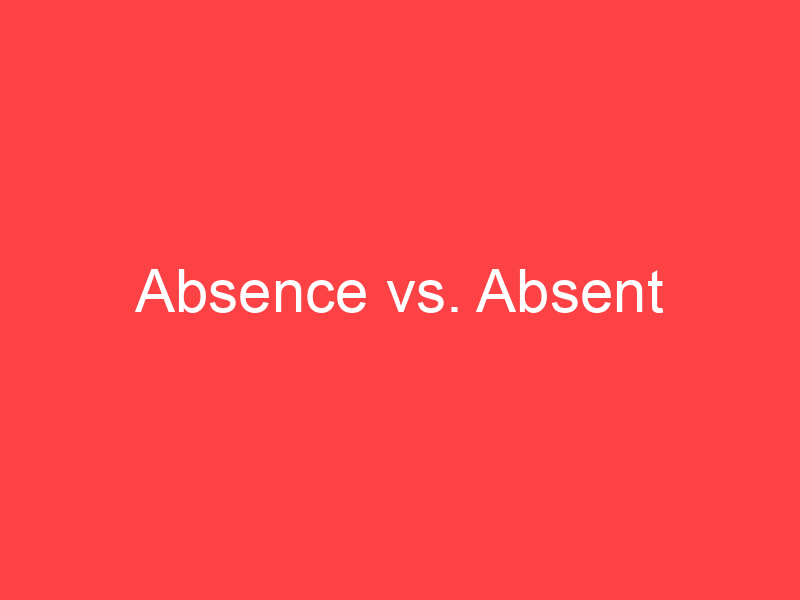-
Absence (noun)
A state of being away or withdrawn from a place or from companionship; the period of being away. First attested around 1350 to 1470.page=8
“Absence makes the heart grow fonder.”
-
Absence (noun)
Failure to be present where one is expected, wanted, or needed; nonattendance; deficiency. First attested around 1350 to 1470.
-
Absence (noun)
Lack; deficiency; nonexistence. First attested around 1350 to 1470.
“He had an absence of enthusiasm.”
-
Absence (noun)
Inattention to things present; abstraction (of mind). First attested in the early 18th century.
“absence of mind”
-
Absence (noun)
Temporary loss or disruption of consciousness, with sudden onset and recovery, and common in epilepsy. First attested in the mid 20th century.
-
Absence (noun)
Lack of contact between blades.
-
Absent (adjective)
Being away from a place; withdrawn from a place; not present; missing.
-
Absent (adjective)
Not existing; lacking. First attested around 1350 to 1470.
“The part was rudimental or absent.”
-
Absent (adjective)
Inattentive to what is passing; absent-minded; preoccupied. First attested in the early 18th century.
-
Absent (noun)
Absentee; a person who is away on occasion. Attested from around 1350 to 1470 until the early 19th century.
-
Absent (preposition)
In the absence of; without. First attested in the mid 20th century.
“Absent taxes modern governments cannot function.”
-
Absent (verb)
To keep (oneself) away.
“Most of the men are retired, jobless, or have otherwise temporarily absented themselves from the workplace.”
-
Absent (verb)
To keep (someone) away. First attested around 1350 to 1470.
-
Absent (verb)
Stay away; withdraw. Attested from around 1350 to 1470 until the late 18th century.
-
Absent (verb)
Leave. First attested around 1350 to 1470.
-
Absence (noun)
the state of being away from a place or person
“the letter had arrived during his absence”
“I supervised the rehearsal in the absence of the director”
-
Absence (noun)
an occasion or period of being away from a place or person
“repeated absences from school”
-
Absence (noun)
the non-existence or lack of
“she found his total absence of facial expression disconcerting”

